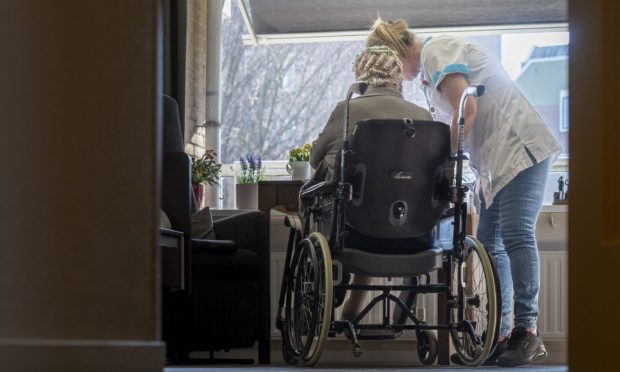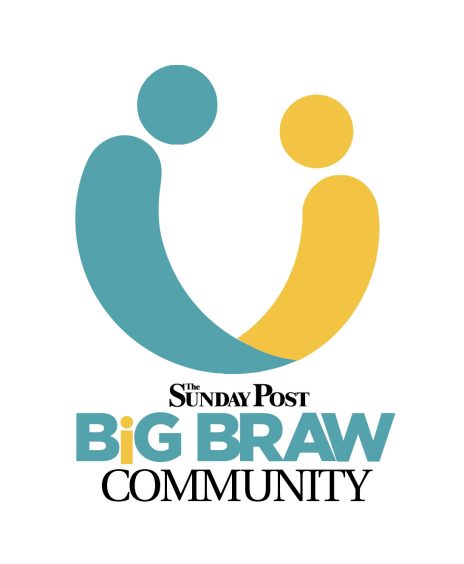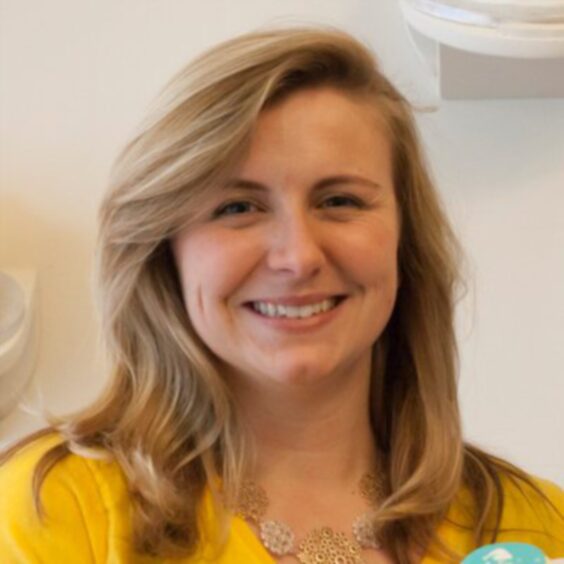
Carers warn home visit cuts are fuelling the loneliness crisis affecting millions.
They say housebound Scots are losing vital human contact because of relentless cuts to frontline services. Delivering personal care at home used to mean 30-minute visits. But cutbacks and more people needing care mean staff are finding their time slashed to as little as 10 minutes.
Some carers, particularly in the private sector, are being forced to make up to two dozen visits per shift including washing and dressing, administering drugs, making sure people are eating and drinking and checking prescriptions.
Katherine Crawford, chief executive of Age Scotland, our partners in our Big Braw Community campaign, is calling on the Scottish Government to “fix social care”. She said: “At a time when the social care sector is already being stretched beyond its limits and demand for services increases, these budget cuts are forcing impossible decisions that will absolutely have a negative impact on the quality of life for huge numbers of older people.
“Having just 10 minutes to attend to a person’s care needs can’t possibly be in their best interest or have good outcomes for either clients or carers.
“The message to the Scottish Government is clear. Fix social care. The new Cabinet Secretary for Health and Social Care has a big job on his hands, but it must be a priority and visible progress made swiftly. People don’t have time to lose.”

Our campaign
Louise Gilmour, Scottish Secretary of the GMB union, praised our Big Braw Community campaign to end loneliness, and said care visits often provide the only human contact for our most vulnerable.
She said “Home care workers are often the only people their clients see all day. Those few minutes spent chatting to clients can be the most important in terms of reassuring them that people are there for them, that they’re not alone.
“Take that away and the impact can be devastating.
“Spending cuts mean fewer staff are making more visits and our members are racing from pillar to post to make sure everyone is seen but that pressure is relentless and untenable.
“Now, visits can be shorter than 10 minutes, barely long enough to deliver the essentials of good care, as staff are watching the clock, knowing they have to rush to their next visit.
“It is not just about delivering care but also protecting the standard of care. Caring for vulnerable housebound people, who are often ill or infirm, is about more than ticking boxes.
“Carers must be given time to talk with people because sometimes only a little conversation can make sure everything is okay.
“Social care partnerships have endured relentless pressure on budgets but home care for some of the most vulnerable people in our communities must surely be an essential?
“Our councils must protect the service and protect the standard of care and the Scottish Government must understand the level of crisis in home care and ensure there is sufficient and sustainable funding.”
GMB Scotland, one of the biggest unions in social care, polled home carers at East Ayrshire Council last year and revealed 82% have shortened home visits to ensure they can see everyone that needs support.
In December, service users in Glasgow had half-hour visits cut to between 10 and 15 minutes as many exhausted staff were off ill, many with stress-related conditions.
Care workers say they are struggling to cope with the workload. One said: “There are heavy workloads and a lot of stress and anxiety. Some nights I look at my phone and will have 23 visits to complete. It can’t be done.”
In May, GMB Scotland revealed four out of five social care staff considered quitting because of low pay and overwork.
The union fears discussions around the proposed National Care Service are stalling and warned of a catastrophic exodus of experienced staff who deserve more than “talking shops and false promises.”
Unison’s Jennifer McCarey said: “We can’t see any circumstances where a 10-minute visit is in any way acceptable. It’s hardly enough time to take your jacket off never mind deliver a service.”
We can deliver the basics, but people need human contact
Lanarkshire gran Beth McGowan, 62, became a carer after looking after husband Stevie who was diagnosed with MS when he was just 42 years old.
After he died in 2014, Beth became a carer with South Lanarkshire Council, a job she loves. She said: “Delivering care to people who are often housebound or on their own is a privilege.
“They are the most interesting people you can meet because of their life experiences.
“It’s deeply distressing to them and their carers if they don’t get the time for a blether, and we are luckier than many of those working for private firms as we can ask for more time.
“You learn so much about their health when you get a chance to talk.”
Beth saw how the loneliness brought on by the pandemic affected those she looks after. She said: “I saw the physical and mental deterioration as time went on and they became isolated.
“It took such a lot from those vulnerable people, and most never fully recovered.
“We can deliver the basics, make sure people are fed, clean and they receive their correct medication. But wellbeing needs more than that. People need human contact too.”
Expert: We always step up when there is a need
By Georgia Artus, Development manager for Vintage Vibes, Edinburgh
Creating consistent, trusted relationships for older people is a true preventative action, increasing physical and mental wellbeing as well as ensuring red flags are caught early enough to reduce the likelihood of individuals reaching a crisis point.
The impact of these moments of connection far outlasts the time spent together.
Half of the older people supported by our Vintage Vibes befriending service feel more confident to go out alone directly due to the positive impact of the time spent with a volunteer each week.
We are already hearing of the impact that is made by shorter home care visits and inconsistency in who is making those visits.
The third sector is adapting and expanding their efforts to go above and beyond to make the lives of older people better.
When Vintage Vibes was developed eight years ago, our approach formed due to research with older members of the community within Edinburgh who said that what contributed most to their loneliness was not having just a few consistent faces in their lives that they could connect with and trust .
Projects like The Beacon Club at Space are planning bus routes so those who are loneliest are picked up first and dropped off last from day centres, to ensure they get the most time for contact and chat.
All our combined efforts to go the extra mile are at cost to third-sector organisations, but where there is need, we will always do our best to step up.

Enjoy the convenience of having The Sunday Post delivered as a digital ePaper straight to your smartphone, tablet or computer.
Subscribe for only £5.49 a month and enjoy all the benefits of the printed paper as a digital replica.
Subscribe